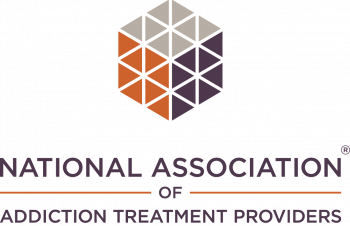When it comes to family, there can be deeply embedded issues and challenges that can affect the mental health of your spouse, children, and other relatives. Coming to terms with the need for counseling is one of the most difficult steps in the recovery process. Of course, another complicated matter is getting the rest of your family to participate. If you feel an intervention is needed in your family, we encourage you to reach out to the professionals at TruHealing Gaithersburg to learn more about our services, including family therapy. We can help walk you through how best to help your loved ones understand why family therapy could help the family unit function better as you move forward. Reach out to us today to speak with a trained specialist at (833) 625-0398 who can help guide you on the right path for you and your family.
How Family Therapy Can Impact Mental Health
1. Family Therapy Can Improve Codependent Relationships
Codependency happens in situations where your emotions are wrapped up or enmeshed with those of others. In codependent circumstances, if one person isn’t happy, their spouse is unlikely to be happy either. If you’re not happy, the rest of those in your household may be struggling as a result.
In family therapy, a mental health counselor can help you break the habit of codependent behavior. These habits can include:
- Taking responsibility for the actions of others
- Worry about problems that are not your own
- Trying to protect others at a cost to your own well-being
- Approval seeking
- Lack of self-worth resulting in unreasonable expectations
- Relationship dynamics that are not based on mutual respect
- Trying to change others
- Telling others what they “should do”
- Letting others take advantage of you and your time
- Neglecting your self-care needs
A therapist can help you and your family discuss ways to validate each other and unravel the negative effects of codependency.
2. Help for Communication Breakdowns
Sometimes you reach a point where you’re not communicating well with others and they’re not communicating well with you. Unfortunately, many relationships develop bad communication habits such as talking past one another instead of being a good active listener. A therapist can help you, your spouse, and family members learn techniques for active listening and practice respectful ways to engage in conversation.
3. Become More Interested in Family Activities
There are many reasons why family members may express disinterest in activities. Sometimes it’s simply a matter of lack of money and savings. Working with a financial planner as well as a therapist could help you better navigate the day-to-day and allow you to get back to engaging in activities you mutually enjoy.
There are instances when families stop going on vacations together because something seems to always go wrong and everyone insists they are not having a good time. There could be any number of reasons why this is the case. One reason could be that anticipation is one of the most enjoyable aspects of travel. In general, looking forward to activities is often as much fun, if not more fun, than the activities themselves. Learning how to let other family members play a role in vacation or general activity planning can help create excitement around upcoming family activities.
4. Help for Family Members Struggling with Addiction
When a family member is battling addiction, it affects the rest of the family unit. It’s difficult to watch a family member struggle and put themselves in dangerous situations or otherwise at risk. Families who deal with addiction often suffer mental health challenges as a result. They want to help but feel helpless.
Family therapy can help clients learn ways to navigate the emotional distress caused by watching up close as another family member struggles with addiction and recovery. It’s important to remember that individuals with family support have a much higher chance of lasting recovery if they have a support system in place. Family can provide reassurance and validation as someone goes through the process of recovery and learns skills for sober living.
5. Family Integration
Family integration is a therapy program designed to help families learn improved communication skills. Sessions are personalized and tailored for individuals, spouses, siblings, parents, and children so that each family member feels their voice is heard. Families learn important self-care strategies that they can use to better engage when family disputes arise.
In family integration sessions, family members learn to:
- Regain trust in other family members
- Find ways to forgive negative past behaviors and incidents
- Take personal responsibility for their actions
- Manage expectations
Contact Us Today to Learn About the Benefits of Family Therapy
At TruHealing Gaithersburg, we offer family therapy services as a holistic approach to helping families work on their relationships in a safe and secure environment. The mental health professionals in our family therapy treatment program are always respectful of each family member’s perspectives and work hard to make sure everyone feels appropriately validated. Reach out today at (833) 625-0398 to speak with a trained representative who can tell you more about the benefits of family therapy for you and your family.









